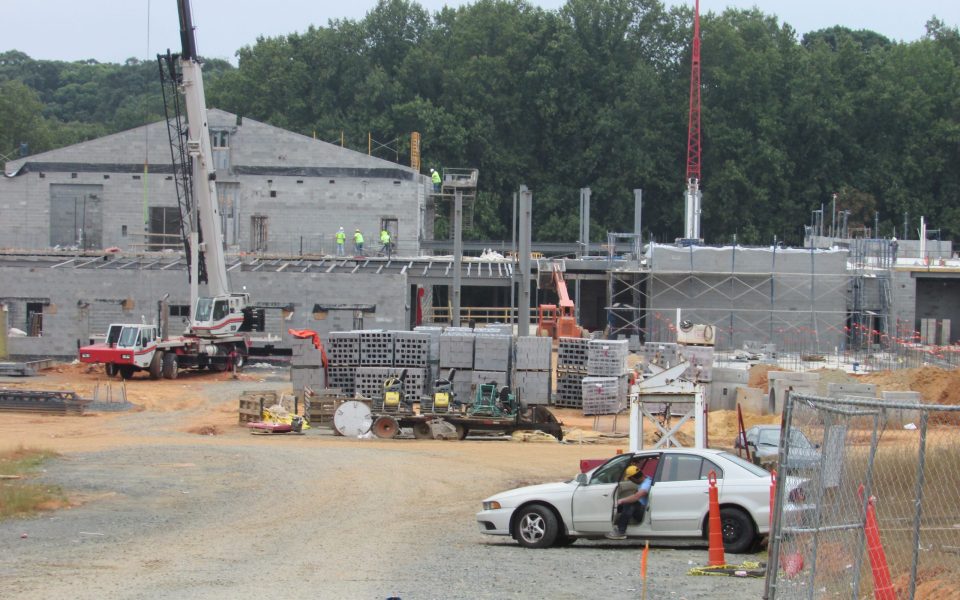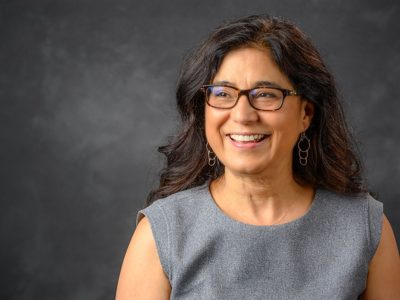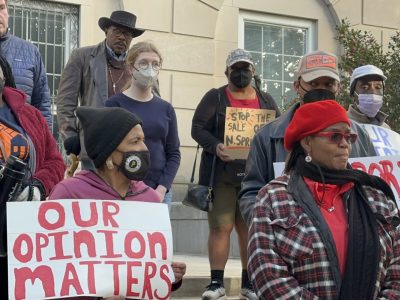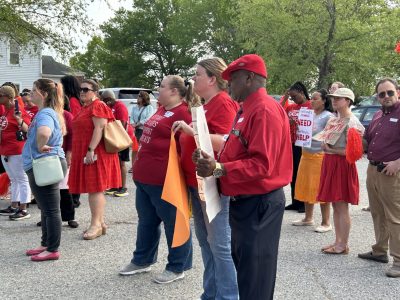No one’s quite sure why Winston-Salem is getting an extra $683,114 from the federal government, but city officials have a pretty good idea of how they want to spend the money.
Despite threats from the Trump administration to eliminate the Community Development Block Grant, officials in Winston-Salem have received a pleasant surprise: a 12.2 percent increase in the federal funding stream, which supports homebuyer assistance and a wide range of programs related to neighborhood stabilization and economic development.
The increase brings the city’s allocation for fiscal year 2018-19 up to $2.2 million. Meanwhile, funds from the federal HOME Investment Partnerships Program, which also supports local housing investment and is split between the city and Forsyth County, increased by 47.6 percent to $1.4 million. Federal funding from the Emergency Solutions Grants, which largely supports operation and repairs to homeless shelters, is decreasing slightly to $177,701. Taken together, the three streams of federal funding to Winston-Salem increased by 20.8 percent, according to a draft of a 5-year plan prepared by local officials for the federal government.
“We were surprised,” Community Development Director Marla Newman said. “It’s not that we applied and then received an award. Maybe our [Congressional] delegation put in a strong word.”
An annual plan developed by Newman’s department for the upcoming fiscal year notes that “large increases in CDBG and HOME funds for the first time in several years” provides opportunities for the city to maintain funding for an array of community agencies and continued spending on programs to assist people experiencing homelessness, along with leveraging improved housing market improvements to ramp up construction of single-family homes and homebuyer assistance.
As reported last week by Triad City Beat, city staff is also recommending that part of the $683,114 windfall go towards renovations to the emergency shelter operated by the Bethesda Center for the Homeless, renovations to increase capacity of a transitional housing program operated by the YWCA of Winston-Salem and Forsyth County for women recovering from substance abuse; and HVAC replacement for an agency that prevents and treats child abuse.
Councilwoman DD Adams, who chaired a meeting of Winston-Salem City Council general government committee on Tuesday, reiterated a request for additional funding to help pay for renovations to a building off New Walkertown Road that is used by Family Services for a HeadStart program. Adams asked Newman if any of the CDBG funding could be used for that purpose.
Newman responded that the funds were already programmed.
“We did a series of public meetings and focus groups and the like to get the input from the citizens about what they deemed as priorities,” she said. “So we generally try to take that feedback when we did those public participation sessions to help kind of shape what this plan was like. So that may not have been an area that kind of bubbled up in terms of us doing any kind of direct investment at this point.”
The city is the lead entity on a housing consortium that directs federal funding for the city and county, along with a handful of nonprofit housing developers, including Habitat for Humanity and SG Atkins. A draft 2019-23 Consolidated Housing and Community Development Plan prioritizes spending for the next five years.
Goals set forth under the 5-year plan include encouraging the location of grocery stores in both downtown and East Winston, and working with private developers to create about 100 downtown residential units. The plan notes that if adequate CDBG funds are available in future years, a number of projects would qualify for support: a youth-focused homeless shelter; expanded hours at city recreation centers; pre-school and daycare facilities; and “publicly supported grocery or farmers markets to help alleviate the food desert issues in low- and moderate-income neighborhoods.”
CDGB funds and Emergency Solutions Grants can be used citywide, while HOME funds can be used across the county. But some economic development funding, including the federal Small Business Loan program, can only be used in an area designated by city planners as the Neighborhood Revitalization Strategy Area. Covering 24-square miles, including downtown, and large portions at the north, east and southeast ends of the city, the current Neighborhood Revitalization Strategy Area includes more than 56,000 people, 45 percent of whom live below poverty level. The population is 57 percent black and 22 percent Latinx.
Newman said federal representatives with the US Department of Housing & Urban Development recommended during a monitoring visit in April that Winston-Salem’s Neighborhood Revitalization Strategy Area be reduced so that it’s better targeted to address poverty. Newman said staff wants input from council members to make sure the new map still encompasses “key neighborhoods.”
Adams said council members would likely want to make sure that the Cleveland Avenue area, East Winston, the Liberty Street corridor, the Martin Luther King Jr. Drive corridor, much of the Southeast Ward and the Boston/Thurmond neighborhood remain prioritized. The 5-year plan includes a goal to approve four new small business loans leading to job creation and investment in the area.
Goals either underway or under commitment by an array of players under the 5-year plan include:
- Habitat for Humanity will continue purchasing vacant structures and rehabbing them for sale to eligible homeowners in the Cherry Street/Kimberly and Bowen Park areas;
- SG Atkins CDC will continue infill development in the East End Revitalization area;
- Drayton Pines, a 44-unit Housing Authority property, is undergoing rehabilitation with CDBG funds;
- The city is using 2014 bond funds to rehab the New Hope Manor apartment complex, demolishing units that are beyond repair while bringing the remaining units up to code;
- Habitat for Humanity, Liberty East Redevelopment Inc., Mt. Sinai Inc. and the Experiment in Self-Reliance have started to work in Bowen Park/Dreamland area;
- The SG Atkins CDC will continue development in the Ridgewood Place subdivision using HOME funds and bonds approved by Winston-Salem voters in 2014;
- Emmanuel Retirement Village, a 42-unit planned senior-housing rental development by Ujima CDC using 2014 bonds, will begin construction in fiscal year 2018-19; and
- SG Atkins CDC’s Enterprise Center will install a shared-use, licensed commercial kitchen to be ready for use in fiscal year 2018-19.
Join the First Amendment Society, a membership that goes directly to funding TCB‘s newsroom.
We believe that reporting can save the world.
The TCB First Amendment Society recognizes the vital role of a free, unfettered press with a bundling of local experiences designed to build community, and unique engagements with our newsroom that will help you understand, and shape, local journalism’s critical role in uplifting the people in our cities.
All revenue goes directly into the newsroom as reporters’ salaries and freelance commissions.





Leave a Reply